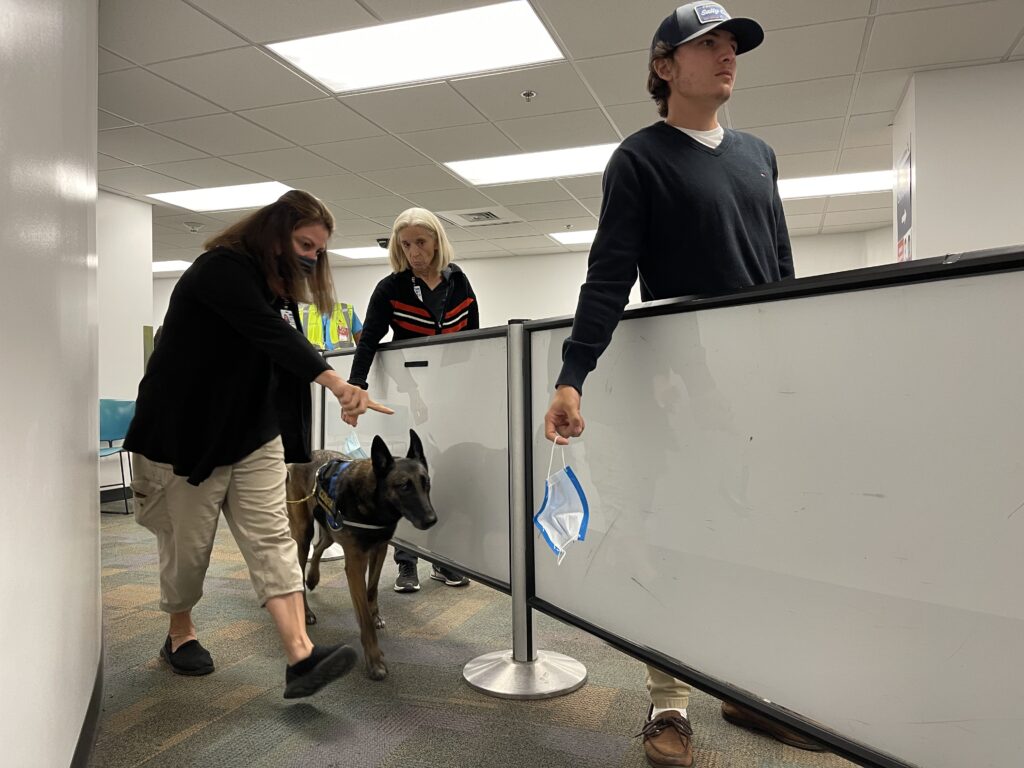Miami International Airport (MIA) has enlisted the help of Covid-19 detector dogs, specially trained by the Global Forensic and Justice Center (GFJC) at Florida International University (FIU).
Though detector dogs have long been used by federal and local agencies at MIA to detect prohibited currency, drugs, explosives and agricultural products, studies have also revealed that detector dogs can reliably detect people with diseases such as diabetes, epilepsy and certain cancers. These studies have demonstrated that detector dogs are one of the most reliable tools available to identify substances based on the odors they emit. Therefore, detector dogs have the potential for immediate detection and response to Covid-19 in public spaces like airports.
After hundreds of training sessions at FIU’s Modesto Maidique Campus, the detector dogs achieved accuracy rates from 96% to 99% for detecting Covid-19 in peer-reviewed, double-blind testing trials.
The two dogs in the pilot program at MIA are called Cobra (a Belgian Malinois) and One Betta (a Dutch Shepherd). Cobra and One Betta can alert airport staff to the scent of Covid-19 because of the metabolic changes that the virus causes. These changes result in the production of volatile organic compounds (VOCs) that are then excreted in a person’s breath and sweat and detected by these trained dogs. The metabolic changes are detectable for all people, regardless of their individual scents. If a dog indicates that an individual is carrying the odor of the virus, that person is directed to get a rapid Covid test.
Dr Kenneth G Furton, FIU provost and professor of chemistry and biochemistry, said, “Being able to apply decades of research in this way to provide an additional layer of protection to airport employees at MIA, it’s humbling. These dogs are another valuable tool we can leverage to help us live with this ongoing pandemic.”

